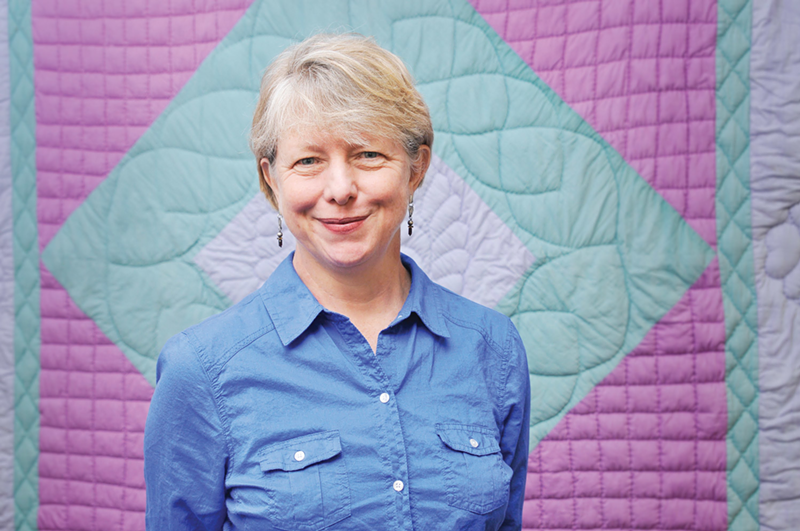Diane Debevec was on the verge of becoming a partner at a large architecture firm when she decided to quit her job and move to Cincinnati. In 1999, amidst sharing studio space with local artists, she began taking writing classes at the then eight-year-old foundation, Women Writing for (a) Change (WWf(a)C). Today, as the director of the now-nonprofit organization, she and the staff are hard at work encouraging women of all ages to find and celebrate their individual voices.
“Women Writing for (a) Change profoundly changed my life,” Debevec says. “I was able to start an honest conversation with myself in an environment where I was respected and listened to.”
The organization, founded in 1991 by high school teacher Mary Pierce Brosmer, began as a small circle of women meeting once a week for writing classes in an honest, safe environment. It grew slowly through the ’90s, women started bringing their daughters, and soon there was an effort to begin raising money for scholarships. In 2000, a nonprofit was started alongside the writing workshops and in 2004, a leadership academy began as a means of involving former students as program facilitators. In 2009, Brosmer sold her business to the nonprofit and since then it has continued to grow in enrollment and community involvement.
“We’ve really had the gambit of ages come through,” Debevec says. “We’ve had women in their 20s and a woman well into her 90s. The majority of women range in age from 30s to 60s.”
Facilitated classes meet in circles to create a comfortable atmosphere in which the notion of a single, authoritative “teacher” gives way to communal discussion and growth. The organization’s basic offering includes core classes for women, an original model that Brosmer used at the foundation’s inception. In the past, WWf(a)C has also offered classes concerning divorce, soul collage, journaling, mastery classes for those interested in longer works, and classes for the daunting task of National Novel Writing Month (NaNoWriMo) in which participants strive to write a 50,000-word novel during the month of November. Young girls can participate in summer camps that have been active since 1996. There are even some co-ed classes available, as well as a concert series and book club that are open to both men and women.
“What we teach here in Conscious Feminine Leadership is self-care,” Debevec says. “A lot of us will work and work and work until we’re exhausted or sick. [The goal] is to sustain a job for a longer period of time and do a better job over the long-haul.”
Debevec explains that one of the most telling and intriguing aspects of the organization is its name, whose unconventional parenthetical is both a playful hint and a serious social commentary.
“People ask us about [the name] all the time,” she says. “Of course the ‘a’ is in parentheses, and that is about the fact that women often haven’t gotten a voice in our world. When I worked in corporate America, I worked in an industry that was dominated by men. The idea of having something that really focuses on women and empowers women is an unusual thing in our society.”
The WWf(a)C center is not an island unto itself, either, continuing to be involved in many community outreach programs and partnerships. The organization partners with Project Connect to bring the writing program to public schools and young women at risk for homelessness. Facilitators have also worked with Starfire University, a nonprofit that supports adults with disabilities, as well as Rosie’s Girls, incorporating writing circles among lessons in plumbing, welding and other handy-woman expertise. Other partners include Women Helping Women, The Women’s Connection and the Kennedy Heights Arts Center. WWf(a)C also welcomes volunteers and interns to help fulfill its 22-year-old mission.
With five affiliate sites in Alabama, Indiana, Vermont and Colorado, WWf(a)C and its mission has expanded across the country. As for the future, Debevec is wary of growing too large too quickly.
“Growth for growth’s sake is a very dangerous concept,” she says. “We want to get the point of being at the right size, and we’re still trying to figure out what that size is. What size can we be that serves the population of Cincinnati in the best way? That will be what’s right.”
The WOMEN WRITING FOR (A) CHANGE writing hall (6906 Plainfield Road, Silverton) will be open 10 a.m.-2 p.m. Saturday for Community Arts Centers Day. More info: 513-272-1171, womenwriting.org.


